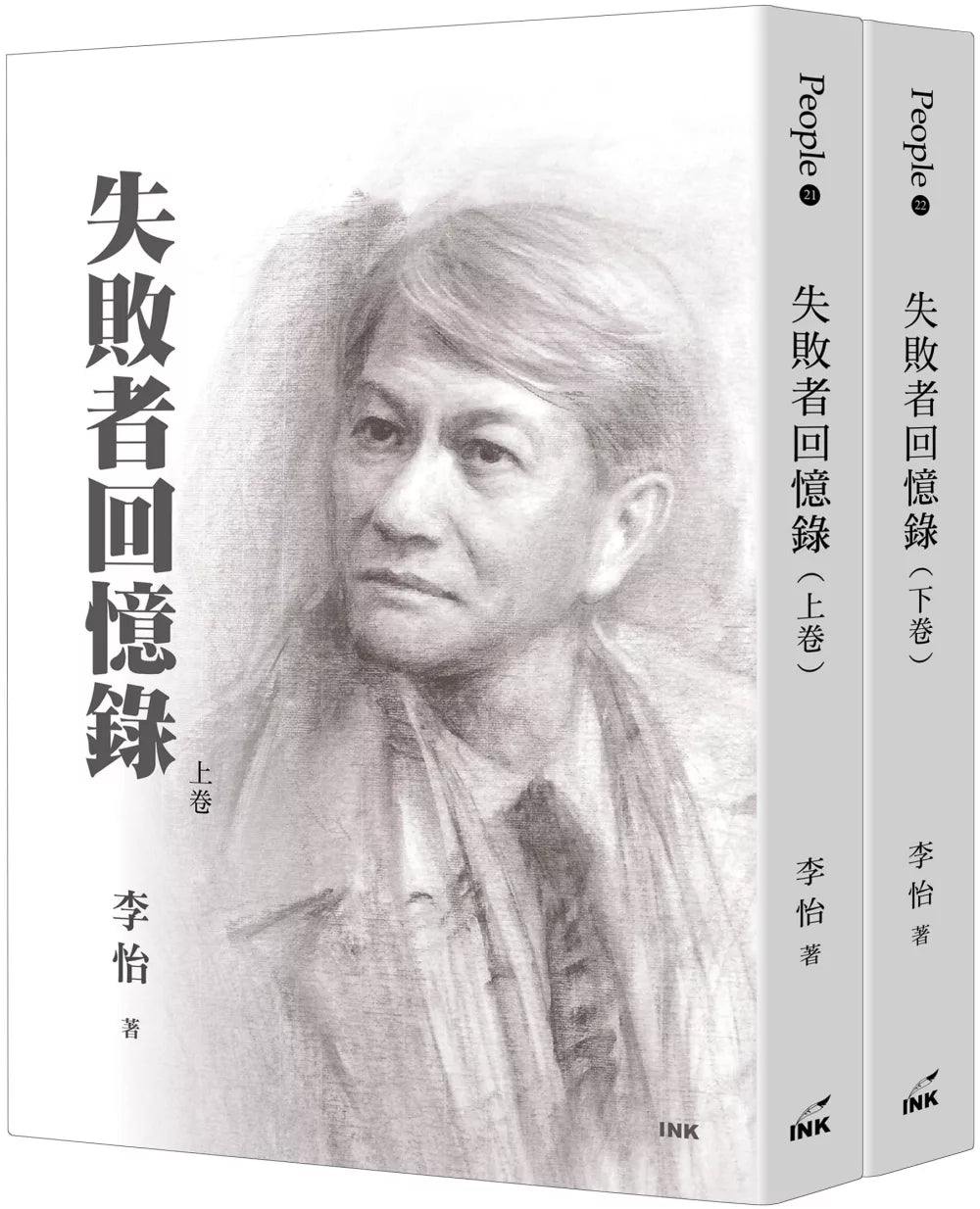1
/
of
1
Memoirs of a Loser (Part 1 and Part 2 not sold separately)
Memoirs of a Loser (Part 1 and Part 2 not sold separately)
Li Yi
Regular price
$48.99 USD
Regular price
Sale price
$48.99 USD
Unit price
/
per
Low stock
Couldn't load pickup availability
About Book
About Book
Society has always moved in the opposite direction of everything I've advocated and promoted throughout my life, whether it's reading, independent thinking, or democracy and freedom. ... In a world where facts are no more powerful than lies, and truth is no more powerful than power, where power, money, and sex dominate all value systems, as a writer who stays true to myself, it's hard to avoid constant frustration. Especially since I've been writing for such a long time, and have faced such profound changes in China, Taiwan, and Hong Kong, when I think back on the goals I've promoted at different times in my life, what comes to mind is undoubtedly a series of setbacks, a true "life of failure." — Li Yi
He advocated tolerance for dissent and freedom of expression, hoping for a multi-party democratic system in Chinese society, where those in power would at least be subject to media scrutiny. He fiercely defended Hong Kong's bottom line, becoming the most widely and harshly targeted intellectual for his speech: from left-wing newspapers he knew and worked with, calling him a "traitor," "anti-China," "anti-China and a Hong Kong rebel," to "Hong Kong independence advocate." Even media outlets he once worked for, within the same camp, smeared him with ridiculous accusations and threats, accusing him of "plagiarism." He remained steadfast and refused to yield to totalitarianism and thugs.
After repeated disillusionment with his beliefs and ideals, he began to rediscover and love Hong Kong, and continued to read and think throughout his life.
Born in China, he loved China, and transferred his affections to Taiwan and Hong Kong, yet ultimately, he died haunted by China. In his later years, he titled his autobiography "Memoirs of a Failure," a record and a warning to future generations of Hong Kongers. The vastness of his era, the turbulent human affairs, offer a rare and untold treasure of Hong Kong history. He lamented his "failure," feeling sorry for the wasted life of a Chinese liberal intellectual. Yet, his life was not a failure; it was the failure of Lu Xun's definition of the Chinese, and the cultural China that was its foundation.
"I will always remember the journey of the rivers and lakes, returning with white hair, and longing to return to the world in a small boat." He witnessed the rise and fall of Hong Kong, and upheld his conscience and principles, devoting his entire life to fulfilling the obligations of a scholar. Hong Kong, once an international economic and trade metropolis, only lacks a bronze statue of him. For the Chinese community around the world has countless doctors, engineers, lawyers, scholars and professors, but for seventy years, Hong Kong has only had one Li Yi. -- Tao Jie
Features of this book
He witnessed the rise and fall of Hong Kong, upheld his conscience and principles, and devoted his life to fulfilling the obligations of an educated person.
For seventy years, there has been only one Li Yi in Hong Kong.
He advocated tolerance for dissent and freedom of expression, hoping for a multi-party democratic system in Chinese society, where those in power would at least be subject to media scrutiny. He fiercely defended Hong Kong's bottom line, becoming the most widely and harshly targeted intellectual for his speech: from left-wing newspapers he knew and worked with, calling him a "traitor," "anti-China," "anti-China and a Hong Kong rebel," to "Hong Kong independence advocate." Even media outlets he once worked for, within the same camp, smeared him with ridiculous accusations and threats, accusing him of "plagiarism." He remained steadfast and refused to yield to totalitarianism and thugs.
After repeated disillusionment with his beliefs and ideals, he began to rediscover and love Hong Kong, and continued to read and think throughout his life.
Born in China, he loved China, and transferred his affections to Taiwan and Hong Kong, yet ultimately, he died haunted by China. In his later years, he titled his autobiography "Memoirs of a Failure," a record and a warning to future generations of Hong Kongers. The vastness of his era, the turbulent human affairs, offer a rare and untold treasure of Hong Kong history. He lamented his "failure," feeling sorry for the wasted life of a Chinese liberal intellectual. Yet, his life was not a failure; it was the failure of Lu Xun's definition of the Chinese, and the cultural China that was its foundation.
"I will always remember the journey of the rivers and lakes, returning with white hair, and longing to return to the world in a small boat." He witnessed the rise and fall of Hong Kong, and upheld his conscience and principles, devoting his entire life to fulfilling the obligations of a scholar. Hong Kong, once an international economic and trade metropolis, only lacks a bronze statue of him. For the Chinese community around the world has countless doctors, engineers, lawyers, scholars and professors, but for seventy years, Hong Kong has only had one Li Yi. -- Tao Jie
Features of this book
He witnessed the rise and fall of Hong Kong, upheld his conscience and principles, and devoted his life to fulfilling the obligations of an educated person.
For seventy years, there has been only one Li Yi in Hong Kong.
Publication Date
Publication Date
2023-05-01
Publisher
Publisher
印刻
Imprint
Imprint
Pages
Pages
840
ISBN
ISBN
9789863876328
share

